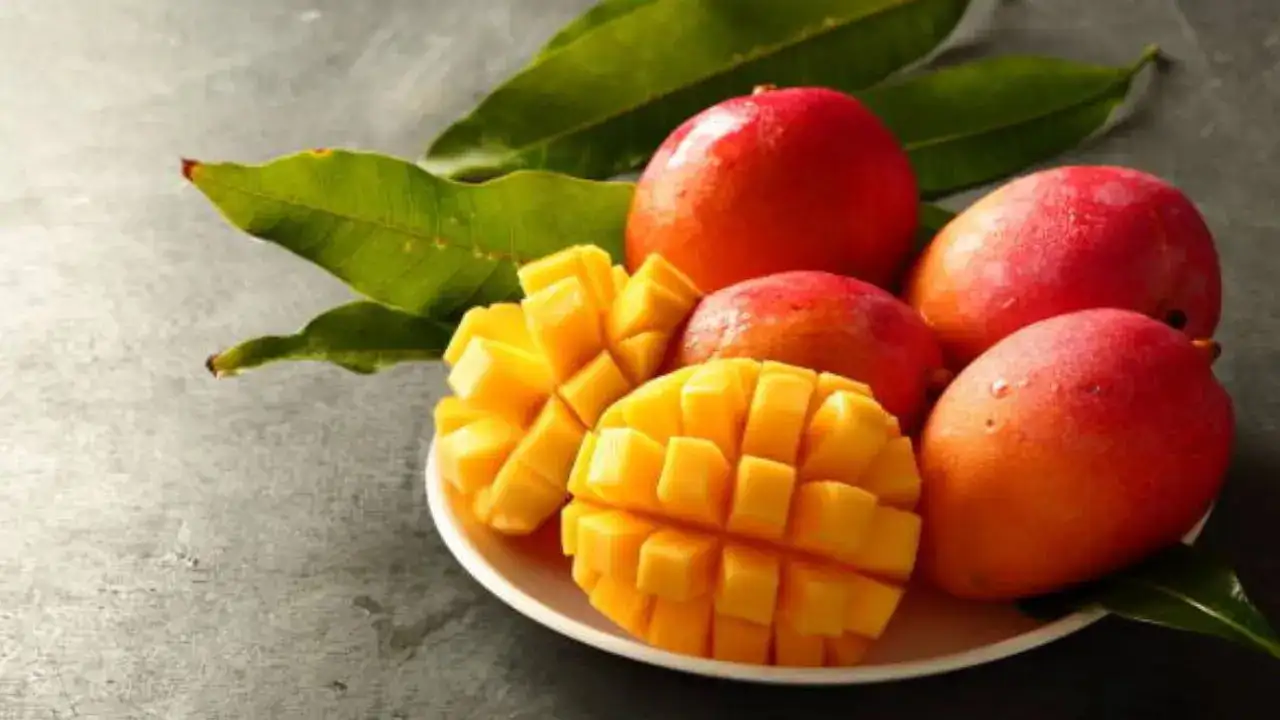
Stop Avoiding Mangoes! Nutritionist Says The King Of Fruits Is Actually Diet-Friendly (Image Credits: iStock)
Mangoes, known as the “king of fruits,” are a summertime staple across India and are loved for their sweet, juicy flavour. But despite their popularity, many people trying to lose weight or manage diabetes often avoid mangoes, believing that the natural sugar content may cause a sudden spike in blood sugar levels.
Celebrity nutritionist Pooja Makhija has stepped in to debunk this common myth. In a recent Instagram post, she explained that mangoes are not the enemy — even for people who are weight-conscious or diabetic. “The key is not to eliminate mangoes from your diet but to eat them smartly and in moderation,” she said.
Mangoes Have a Low Glycemic Load
According to Makhija, mangoes have a glycemic load of just 9, which means they don’t cause a sudden rise in blood sugar when eaten in the right portion. For comparison, bananas have a glycemic load of 12 to 13, and just two dates can take the glycemic load beyond 15.
One reason for mango’s low glycemic load is its high water content — around 83 per cent — which makes it a relatively low-calorie fruit. Mangoes are also packed with vitamin A, vitamin C, fibre, and health-promoting polyphenols, which offer a host of nutritional benefits along with their natural sweetness.
Smart Ways to Eat Mangoes
Makhija shared a few practical tips on how to eat mangoes without worrying about sugar spikes:
- Pair with protein or healthy fat: Instead of eating mangoes alone, combine them with a handful of almonds, walnuts, or flaxseeds. This helps slow down the absorption of sugar into the bloodstream.
- Eat post-workout: After a workout, your metabolism is more active, which helps your body use up the fruit’s natural sugars more efficiently. A few mango slices can act as a refreshing post-exercise snack.
- Stick to a handful: Portion control is essential. A small bowl of mangoes or about a handful of diced pieces is considered safe and sufficient.
- Avoid aamras or milkshakes: Crushing or blending mangoes breaks down their fibre, which can cause their sugar to be absorbed too quickly. This can lead to blood sugar spikes, especially if consumed in large quantities or with added sugar.
Other Healthy Ways to Eat Mangoes
- Add to Greek yogurt: A spoonful of chopped mango mixed into unsweetened yogurt offers a balance of protein and sweetness, making it a good option for breakfast or a light snack.
- Make a mango chia pudding: Mix diced mangoes with chia seeds soaked in almond milk and refrigerate. This creates a fibre-rich, filling snack or dessert.
- Add to salads: Mango cubes can be tossed into green salads with leafy vegetables, grilled chicken, and a squeeze of lemon for a nutrient-packed meal.
- Top your oats: Use a few mango slices as a topping for overnight oats instead of sugary syrups or fruits with higher glycemic loads.
Makhija stressed that most fears surrounding mangoes are based on misinformation. “Mangoes are not unhealthy. They can be enjoyed guilt-free when eaten right,” she said.
Get Latest News Live on Times Now along with Breaking News and Top Headlines from Health and around the world.
